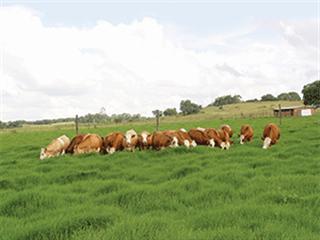The current debate in the agriculture sector is about all types of reform and restructuring, without recognising that it’s relationships that need the most attention. The political and institutional economics within the sector resemble a battlefield, with each party firing carefully selected and strategic salvos of words and actions.
But agriculture plays too vital a role in the economy for this war to be allowed to persist. A griculture is the mainstay of rural economies and a lifeline for cities. If we look at this sector from a relational perspective, then, unfortunately, the barometer-reading is very low. The conflicts over land and land issues are not surprising. Clearly a healthy agriculture sector requires a healthy, functioning and mutually respectful relationship. Food security is linked to relationship reform. Failure to address it will lead to food insecurity as is currently, tragically illustrated in Zimbabwe.
The relationship with nature
If a farmer sees the land he uses to produce a crop or to raise a herd as a mere factor of production, then the obvious thing to do is to over-exploit it for short-term gain. The land existed long before us and will continue to in the future. We have to tread lightly on it, but can only start considering the notion of “tread lightly” if we acknowledge the value of the relationship between the land, its crops and animals, and us. Without a long term, healthy set of relationships, no nurturing is possible.
The relationship with people
Within a South African context this has also become a political issue. But land reform isn’t about black and white. At its core lies relationship reform. The objective is not merely to “have a farm”, but as suggested, to use the abstract term of tenure a person might have over a portion of land to produce food, thereby serving others while serving oneself. That relationship implies much more than just the relationship between a farmer and workers.
It also implies the relationships with suppliers, clients, neighbours, financial institutions and the government. Before a farmer can produce a healthy, profitable crop, there is a maze of relationships to be put in place and kept functional. R elationship reform, however, cannot take place in a hostile environment. For hostilities to end and for permanent solutions to be found the generals have to command, not request, a ceasefire and they must uphold it. This requires leadership, vision and the ability to see the big picture, along with a dream of a constructive future.
Science and technology
Farmers have the responsibility to farm using the most appropriate means at their disposal. In this context it doesn’t necessarily imply the largest tractors and the most expensive chemicals. ather, it implies applying the best approach for the prevailing conditions or circumstances.
This could be zero-tillage, the application of in-field and other forms of rainwater harvesting, the use of the slurry from a biogas digester as organic fertiliser, and several other yield-enhancing yet very accessible and affordable options. Ignorance, however, is the challenge, not technological barriers. There are appropriate solutions that require learning and a willingness to adapt.
A good relationship with self and family Given the importance and range of relationships in the sector, it’s crucial for farmers to find peace with themselves. Persons at war with themselves cannot live in peace with nature or others.
To build a future
While Africa is abundantly blessed in all forms of natural resources, it cannot feed its people. To change that, we need to inspect the quality of our relationships and actively seek to repair and mend them. We cannot continue to use irresponsible and unmanageable slash-and-burn farming practices, or engage in continuous chemical warfare and still expect to keep producing. We cannot expect to be respected and get treated honourably if we fail to honour and respect our fellow tenants. We cannot expect to farm as we farmed when Africa consisted of rural settlements – today we have mega-cities. The quality of farming and the health of the sector depends on the health of our relationships. The state of the nation depends on the ability of the sector to not only survive the ongoing battles, but also to rise out of the ashes. Contact Prof James Blignaut on 084 720 4127. |fw









